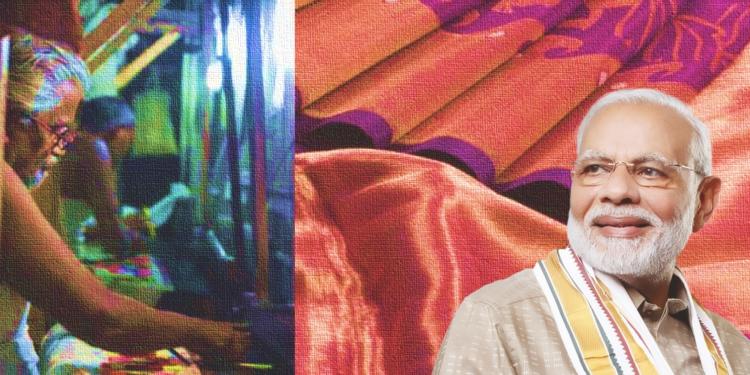The innovation in technology has solved age-old problems in many fields. From the reading of Indian history, we know that Indian textile workers have been destroyed by the new technology installed in the English industrial city – Manchester. The mechanization of cloth manufacturing put the Indian workers at a competitive disadvantage as machines could perform the task of weavers in a shorter time period and with less investment. However, in independent India, technology is being used to solve the problems of very same artisans and weavers. The villages on the periphery of Varanasi which manufacture the ‘authentic Varanasi Saree (nowadays a duplicate version manufactured in China is available in the market)’ used to face frequent power cuts.
The weavers cannot afford diesel powered generator given the high cost and maintenance problem. They cannot install invertor as it takes a lot of space. “With these looms installed here I had hardly any space left in my house. The old battery invertor would take a lot of space which wasn’t available with me,” said Mohammad Hasan. To solve the power cuts, the government with assistance from corporates and NGOs installed solar panels and invertors on the rooftop of weavers. More than half of the total budget came from Corporate Social Responsibility (CSR) and weavers bear rest of the burden. Delhi-based The Energy and Resources Institute (TERI) which has decade old experience with clean energy helped with technical assistance.
“Three power sources are involved in the whole structure. Solar, grid and lithium battery. We had to prioritise the source to maintain the seamless power supply. We have introduced 5-Kilowatt capacity invertor which 6.6 KWh lithium battery and 2-Kilowatt photovoltaic solar panel to address the need,” said Jitendra Tiwari, field manager. The customized system designing as per the needs of the weavers was a difficult task because they require varying degrees of power in very short intervals. But since the installation of solar plants, the weavers in Varanasi are very happy.
“Earlier I would work for long hours because my wages are task oriented. If there was power cut it would take me almost twice as much time to complete a saree. Sometimes I had to work for 15-16 hour to complete a saree,” said 40-year waiver named Babulal. The wages of waivers are task oriented and they earn 500 rupees for a Saree but if have to stretch the work hours if there are frequent power cuts.
The power supply has also helped the enterprise owners to produce more and earn better profits. “If the power supply isn’t regular the weavers lose money and they tend to find a job somewhere else. For me it is very important to have a regular power supply to retain the hard-working employees. This set up has helped me a lot,” said Parasnath Patel, owner of a small enterprise with 10 workers.
The clean energy solution to age-old problem depicts that technology could be used to empower farmers, weavers and artisans. The emphasis of the Modi government on technology has helped the common people in the improvement of the standard of living. The country could take a ‘great leap forward’ on development front through innovative use of technology.

























